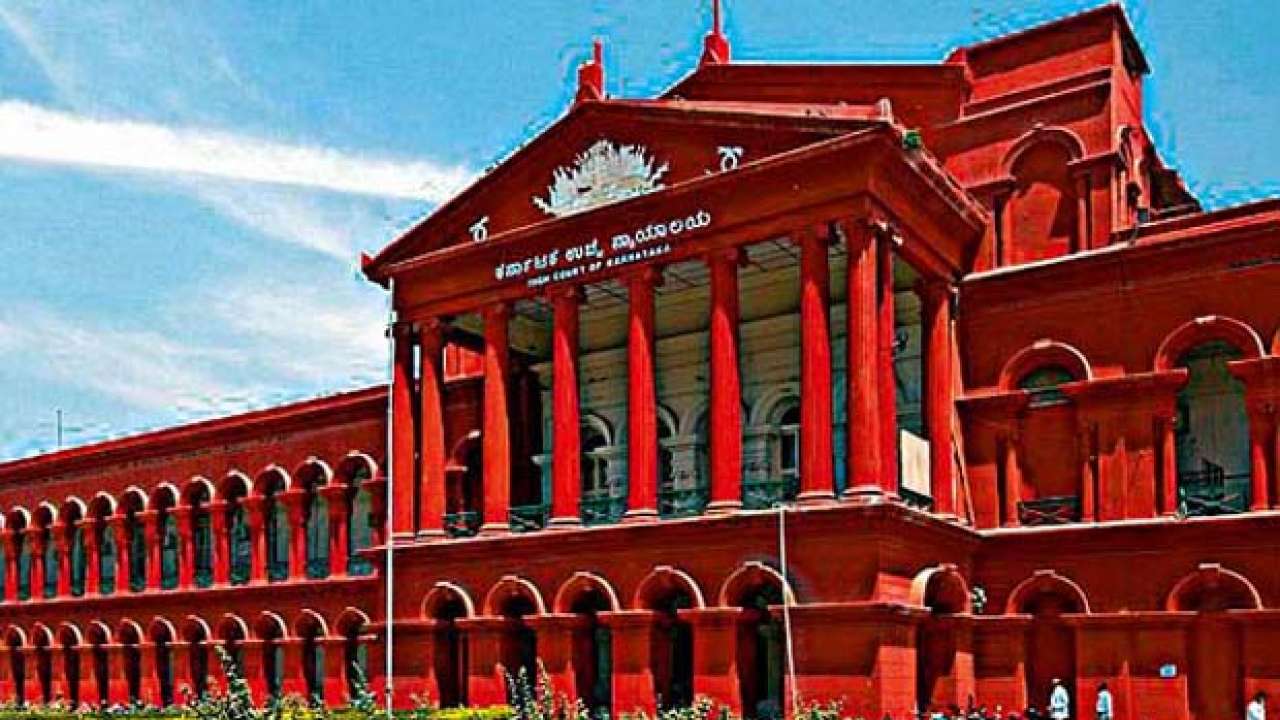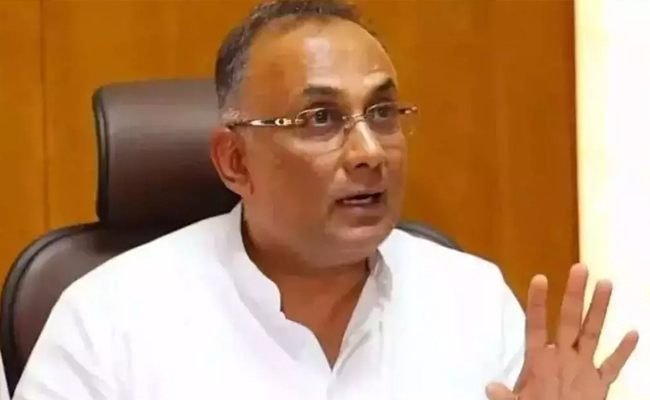Bengaluru, Aug 11: The Karnataka High Court has ruled that those under the employment of Karnataka Milk Federation (KMF) are 'public servants' and therefore can be tried under the Prevention of Corruption Act.
Justice M Nagaprasanna passed the judgement in a case where a former general manager of Nandini Milk Products (a unit of KMF) had challenged the Anti-Corruption Bureau (ACB) action against him for amassing disproportionate assets.
The HC said the petitioner being a General Manager undoubtedly performs public duty and the government obligations of such public duty was transferred to the Federation, when the Federation was created, and therefore, the inescapable conclusion would be that the petitioner would be a public servant within the meaning of Section 2(c) of the Act.
The case was registered against V Krishna Reddy under the Act in 2021 and is pending before the Principal District and Sessions Judge at Chikkaballapura. He had joined KMF as a technical officer in 1997 and reached the post of general manager.
An ACB probe found he had disproportionate assets to the tune of 107.70 per cent. He had approached the HC which had granted a stay on the proceedings on March nine, 2022.
The figures shown in the assets and liabilities statement run to several crores. The aforesaid facts are a matter of record though they are figures prima facie, the HC said.
The HC held it does not matter how much percentage of share the Government holds in an entity. But even if a 'sprinkling aid' is provided it would be sufficient to bring an employee with the definition of 'public servant.'
If the petitioner is a public servant under the Act, the registration of crime against him for offence punishable under Section 13(1)(b) of the Act, cannot be found fault with as it cannot be said, that it is, dehors jurisdiction, the Court said dismissing Reddy's petition.
Commenting on corruption in public life, the HC said in the judgement, It is beyond any cavil of doubt that corruption has percolated to every nook and corner of public life in the country and has become an issue in all walks of life posing a grave danger to the concept of constitutional governance; corruption emerges in various hues and forms and is therefore, unfathomable.
Citing the Supreme Court verdict in the 'Mansukhbhai Kanjibhai Shah' case, the HC said, Zero tolerance towards corruption should be the top-notch priority for ensuring system based and driven, transparent and responsive governance. Corruption cannot be annihilated but strategically be dwindled by reducing monopoly and enabling transparency in decision-making.
Let the Truth be known. If you read VB and like VB, please be a VB Supporter and Help us deliver the Truth to one and all.
New Delhi: A bill to set up a 13-member body to regulate institutions of higher education was introduced in the Lok Sabha on Monday.
Union Education Minister Dharmendra Pradhan introduced the Viksit Bharat Shiksha Adhishthan Bill, which seeks to establish an overarching higher education commission along with three councils for regulation, accreditation, and ensuring academic standards for universities and higher education institutions in India.
Meanwhile, the move drew strong opposition, with members warning that it could weaken institutional autonomy and result in excessive centralisation of higher education in India.
The Viksit Bharat Shiksha Adhishthan Bill, 2025, earlier known as the Higher Education Council of India (HECI) Bill, has been introduced in line with the National Education Policy (NEP) 2020.
The proposed legislation seeks to merge three existing regulatory bodies, the University Grants Commission (UGC), the All India Council for Technical Education (AICTE), and the National Council for Teacher Education (NCTE), into a single unified body called the Viksit Bharat Shiksha Adhishthan.
At present, the UGC regulates non-technical higher education institutions, the AICTE oversees technical education, and the NCTE governs teacher education in India.
Under the proposed framework, the new commission will function through three separate councils responsible for regulation, accreditation, and the maintenance of academic standards across universities and higher education institutions in the country.
According to the Bill, the present challenges faced by higher educational institutions due to the multiplicity of regulators having non-harmonised regulatory approval protocols will be done away with.
The higher education commission, which will be headed by a chairperson appointed by the President of India, will cover all central universities and colleges under it, institutes of national importance functioning under the administrative purview of the Ministry of Education, including IITs, NITs, IISc, IISERs, IIMs, and IIITs.
At present, IITs and IIMs are not regulated by the University Grants Commission (UGC).
Government to refer bill to JPC; Oppn slams it
The government has expressed its willingness to refer it to a joint committee after several members of the Lok Sabha expressed strong opposition to the Bill, stating that they were not given time to study its provisions.
Responding to the opposition, Parliamentary Affairs Minister Kiren Rijiju said the government intends to refer the Bill to a Joint Parliamentary Committee (JPC) for detailed examination.
Congress Lok Sabha MP Manish Tewari warned that the Bill could result in “excessive centralisation” of higher education. He argued that the proposed law violates the constitutional division of legislative powers between the Union and the states.
According to him, the Bill goes beyond setting academic standards and intrudes into areas such as administration, affiliation, and the establishment and closure of university campuses. These matters, he said, fall under Entry 25 of the Concurrent List and Entry 32 of the State List, which cover the incorporation and regulation of state universities.
Tewari further stated that the Bill suffers from “excessive delegation of legislative power” to the proposed commission. He pointed out that crucial aspects such as accreditation frameworks, degree-granting powers, penalties, institutional autonomy, and even the supersession of institutions are left to be decided through rules, regulations, and executive directions. He argued that this amounts to a violation of established constitutional principles governing delegated legislation.
Under the Bill, the regulatory council will have the power to impose heavy penalties on higher education institutions for violating provisions of the Act or related rules. Penalties range from ₹10 lakh to ₹75 lakh for repeated violations, while establishing an institution without approval from the commission or the state government could attract a fine of up to ₹2 crore.
Concerns were also raised by members from southern states over the Hindi nomenclature of the Bill. N.K. Premachandran, an MP from the Revolutionary Socialist Party representing Kollam in Kerala, said even the name of the Bill was difficult to pronounce.
He pointed out that under Article 348 of the Constitution, the text of any Bill introduced in Parliament must be in English unless Parliament decides otherwise.
DMK MP T.M. Selvaganapathy also criticised the government for naming laws and schemes only in Hindi. He said the Constitution clearly mandates that the nomenclature of a Bill should be in English so that citizens across the country can understand its intent.
Congress MP S. Jothimani from Tamil Nadu’s Karur constituency described the Bill as another attempt to impose Hindi and termed it “an attack on federalism.”



_vb_22.jpeg)

